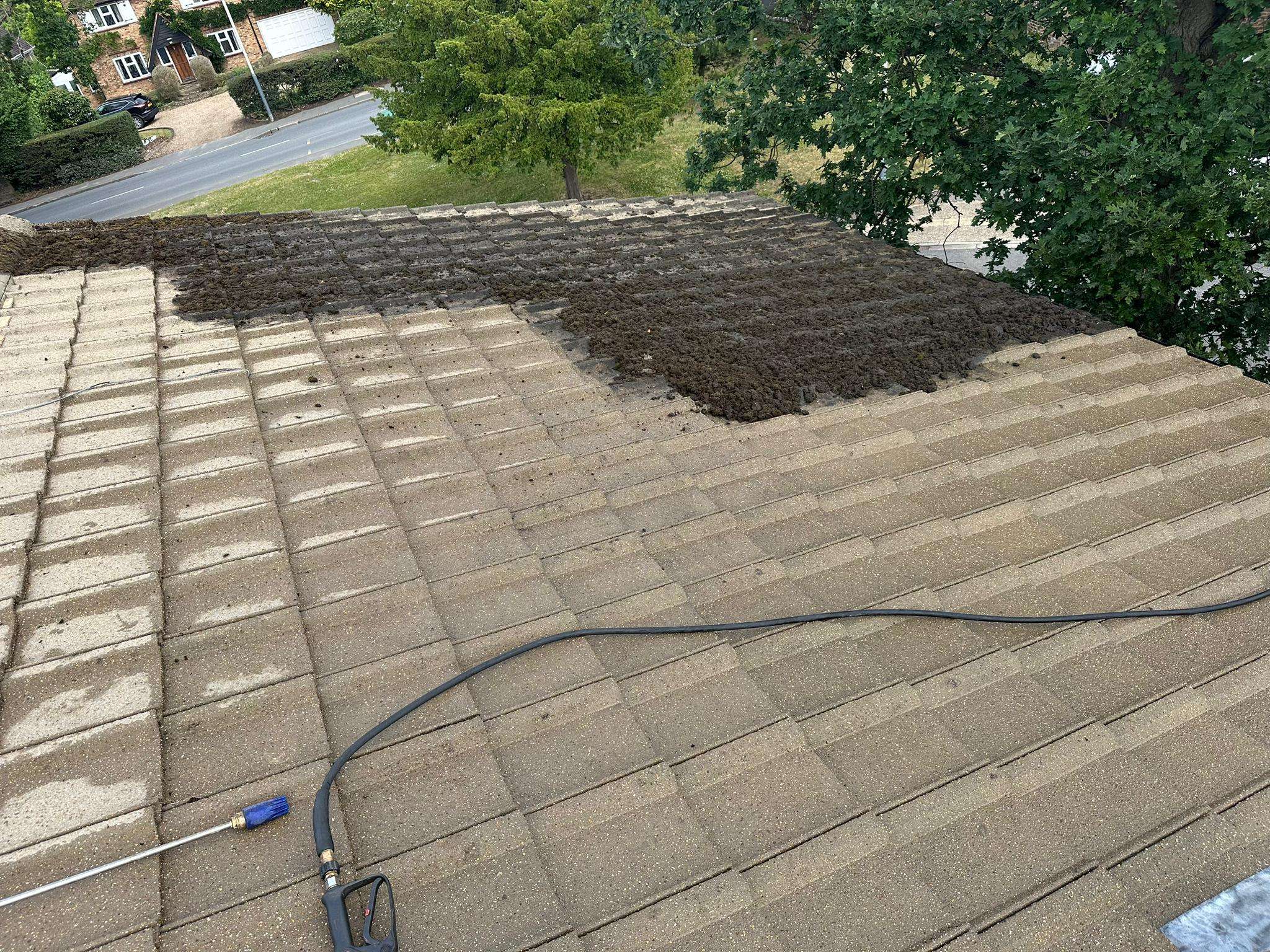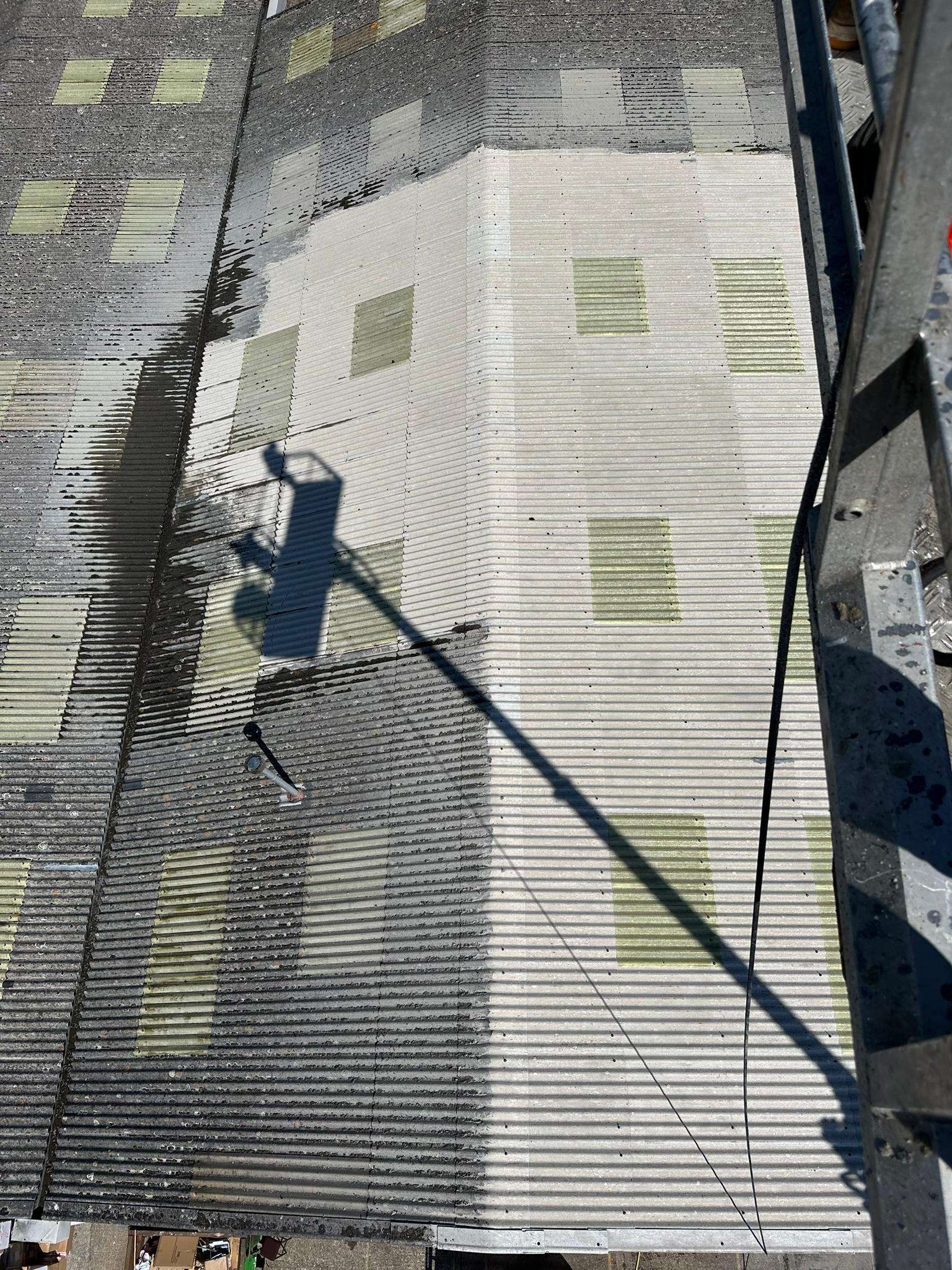A brick driveway is a beautiful addition to any property, adding a classic and inviting touch. However, over time, dirt, oil stains, moss, and algae can accumulate, making your driveway look aged and neglected. Regular driveway cleaning not only restores its appearance but also prevents damage that can shorten its lifespan. In this guide, we’ll go through the steps for effectively cleaning your brick driveway, along with tips for keeping it looking fresh year-round.
Why Driveway Cleaning is Important
Cleaning your driveway isn’t just about curb appeal—it also helps protect the surface from wear and tear. Stains, moss, and algae can make your driveway slippery and unsafe, and oil spills can degrade the surface of the bricks. Regular cleaning removes these contaminants, preserving both the appearance and integrity of your driveway.
Key Benefits of Regular Driveway Cleaning
- Enhanced Curb Appeal: A clean driveway instantly boosts the appearance of your home.
- Safety: Moss and algae can make the driveway slippery, posing a hazard for pedestrians.
- Durability: Removing contaminants prevents them from deteriorating the brick surface, extending the life of your driveway.
- Preventive Maintenance: Regular cleaning keeps grime and stains from becoming embedded, making them easier to manage.
Step-by-Step Guide to Cleaning Your Brick Driveway
Step 1: Gather Your Supplies
For effective brick driveway cleaning, you’ll need the following materials:
- Stiff-bristled broom
- Pressure washer (optional)
- Garden hose
- Driveway cleaner or degreaser (for oil stains)
- Biodegradable moss and algae cleaner (optional)
- Scrub brush
- Protective gloves and safety glasses
If your driveway is heavily stained or covered in moss, consider hiring professional driveway cleaning services, which have access to commercial-grade equipment and cleaning solutions.
Step 2: Sweep the Driveway
Start by thoroughly sweeping your driveway with a stiff-bristled broom. This removes loose debris, dirt, and leaves, making it easier to spot stains and areas that need extra attention. Sweeping also helps prevent dirt from getting pushed into the brick surface during the cleaning process.
Step 3: Pretreat Oil Stains
Oil stains are common on driveways, especially in areas where cars are frequently parked. To remove these stains:
- Apply a driveway cleaner or degreaser directly onto the stain.
- Let it sit for the recommended time on the product label, usually 10–15 minutes.
- Scrub the area with a brush, then rinse with water.
For older or stubborn stains, a repeat application may be necessary. Some DIY methods, like using baking soda or cat litter to absorb fresh spills, can also be helpful for light oil stains.
Step 4: Remove Moss and Algae
Moss and algae thrive on damp brick surfaces, creating a green or black coating that can be both unsightly and slippery. To safely remove moss and algae:
- Apply a moss and algae cleaner or a diluted bleach solution to the affected areas.
- Allow the solution to sit for about 10 minutes to kill the organic growth.
- Scrub the area with a stiff brush to loosen the moss and algae.
- Rinse thoroughly with a garden hose or pressure washer.
Note: If using bleach, make sure to wear gloves and avoid runoff onto plants, as it can harm vegetation.
Step 5: Pressure Wash the Driveway (Optional)
Pressure washing is a highly effective method for driveway cleaning, especially for brick surfaces. If you have access to a pressure washer:
- Set the pressure to a lower setting (1,500–2,000 psi) to avoid damaging the bricks or dislodging sand between the joints.
- Start at one end of the driveway and work in sections, using a sweeping motion.
- Hold the nozzle at a slight angle and about 12 inches away from the surface to avoid stripping the surface.
If you don’t have a pressure washer, a garden hose with a high-pressure nozzle can also work, though it may require more time and effort to achieve similar results.
Step 6: Re-Sand the Joints (If Necessary)
Pressure washing can sometimes dislodge the sand between the bricks, which helps keep them stable. After cleaning:
- Allow the driveway to dry completely.
- Spread a layer of polymeric sand or joint sand over the surface.
- Use a broom to sweep the sand into the joints, filling them completely.
Re-sanding not only stabilises the bricks but also helps prevent weed growth in the joints.
Step 7: Apply a Sealant (Optional)
Applying a sealant to your driveway can protect the bricks from stains, moisture, and fading caused by UV rays. Sealing also enhances the colour of the bricks and adds a subtle sheen, keeping your driveway looking new for longer. To apply a sealant:
- Ensure the driveway is completely dry after cleaning.
- Use a roller or sprayer to apply the sealant evenly across the surface.
- Allow it to cure according to the product instructions, typically 24–48 hours.
Sealing your driveway every 2–3 years provides lasting protection and simplifies future cleaning.
Tips for Maintaining Your Brick Driveway
Regular maintenance keeps your driveway looking great and prevents buildup that requires deep cleaning. Here are a few simple tips to keep it clean year-round:
- Sweep Weekly: Regular sweeping prevents dirt and debris from settling and staining the bricks.
- Spot Treat Stains Quickly: Address oil spills and stains as soon as they occur to prevent them from setting.
- Remove Weeds Promptly: Pull any weeds that sprout in the joints, or use a natural weed killer to prevent them from spreading.
- Keep Drains Clear: If your driveway has nearby drains, make sure they remain unclogged to prevent water from pooling and encouraging moss growth.
When to Consider Professional Driveway Cleaning
For driveways with extensive staining, moss growth, or areas requiring special treatment, hiring a professional driveway cleaning service can save time and ensure a thorough job. Professionals have access to commercial-grade equipment and eco-friendly cleaners that can deliver a deeper, more effective clean. They also know the best techniques to prevent damage to your bricks and ensure your driveway looks its best.
A Clean Driveway Enhances Your Home’s Appeal
A clean, well-maintained brick driveway not only adds curb appeal but also keeps your property safe and functional. Regular driveway cleaning can make a noticeable difference, preventing stains, moss, and other contaminants from damaging the surface. By following the steps outlined above or hiring a professional service, you can keep your brick driveway looking its best for years to come.
Ready to refresh the look of your brick driveway? Contact Exterior Express for professional driveway cleaning services. Our experts use safe, effective methods to bring out the natural beauty of your brick surface and ensure lasting results. Get in touch today for a free quote!
Frequently Asked Questions (FAQs)
1. How often should I clean my brick driveway?
It’s recommended to clean your brick driveway at least once a year. For high-traffic areas or driveways prone to moss growth, consider cleaning it every six months to maintain its appearance and safety.
2. Can I use a pressure washer to clean my brick driveway?
Yes, a pressure washer is an effective tool for cleaning brick driveways. However, use a lower pressure setting (1,500–2,000 psi) to avoid damaging the bricks or dislodging sand between the joints.
3. What can I use to remove oil stains from my driveway?
To remove oil stains, apply a degreaser or driveway cleaner specifically designed for oil stains. Let it sit for 10–15 minutes, scrub with a brush, and rinse thoroughly. For fresh spills, absorb excess oil with baking soda or cat litter first.
4. Should I re-sand the joints after cleaning my driveway?
If pressure washing has dislodged sand from the joints, re-sanding is recommended. This helps stabilise the bricks and prevents weed growth.
5. Is it necessary to seal a brick driveway after cleaning?
While not mandatory, sealing a brick driveway after cleaning can protect it from stains, moisture, and UV damage. A sealant also enhances the colour of the bricks and makes future cleaning easier.
6. Can professional cleaning services remove tough moss and algae growth?
Yes, professional driveway cleaning services can effectively remove moss, algae, and other stubborn contaminants. They use specialised cleaners and techniques to ensure a thorough and safe clean.








